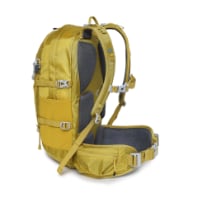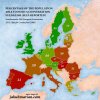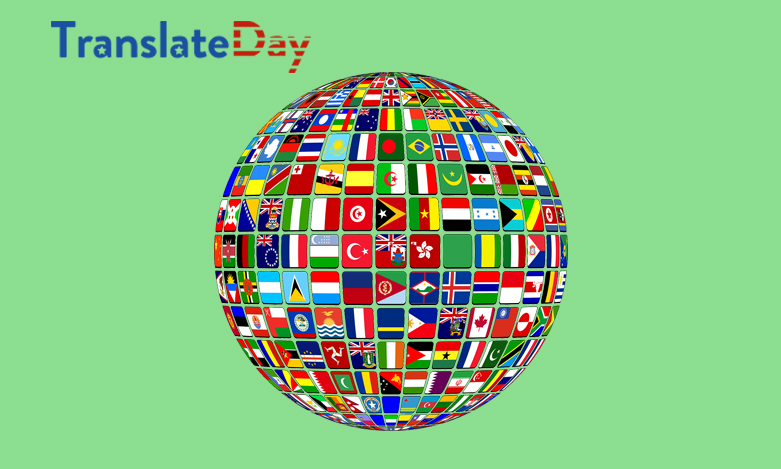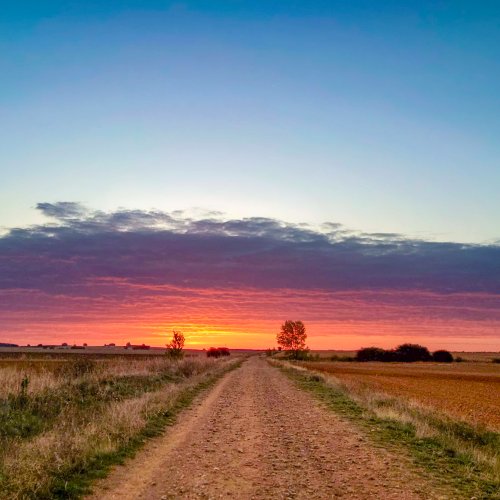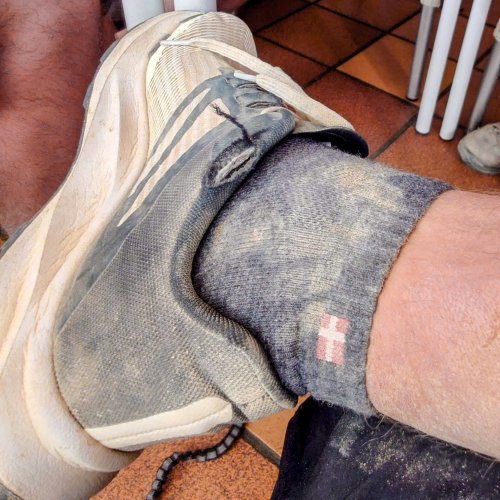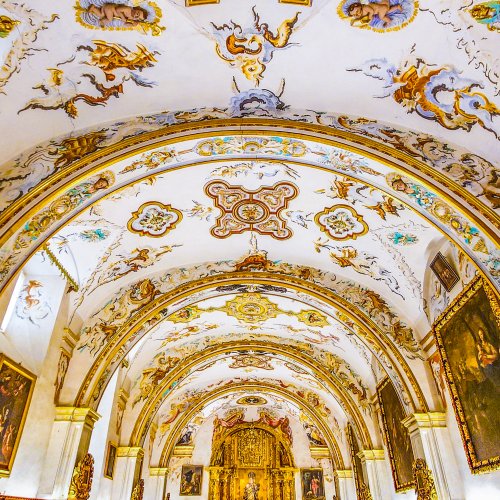JustJack
Active Member
- Time of past OR future Camino
- CF: May/June 2023
VDLP: April/May 2024
Perhaps the one thing that surprised me more than anything else when I started walking the CF in May is how little English is spoken in Northern Spain. Or more precisely, how seldom there is English signage, menus, etc., as compared to other countries.
And before some of you start haughtily replying that it's the visitors' obligation to learn Spanish, not the locals' obligation to cater to non-Spanish speakers, let me articulate my point a bit more.
I've travelled fairly extensively in my life, and when traveling I could find myself at some remote village in Laos, and chances are they will have some version of an English menu at the local restaurant. Not proper English mind you, but enough to get a sense of what the food is. I've experienced this in many countries - pretty much any business that has had one or two foreigners stop by in the past will have some sort of paper with some English on it for future customers.
Not so in northern Spain. I was surprised that when I'd go to a bar in some small village, that caters almost exclusively to pilgrims, and those pilgrims are predominantly non-Spanish speaking, there would very seldom be an English version of the menu.
Again, before people start jumping down my throat, I'm not suggesting that the business owners/workers should be obliged to learn to speak English. But translating a menu costs nothing and takes a few minutes. Why, when 90% of your customers are speaking English (English being the default language when a group of koreans, germans, french, etc are gathered) would you, as a business owner, not translate your menu? It just seems like such an obvious thing to do from a business perspective.
The lack of English in bars and restaurants isn't a big deal, it's just something that I find odd/interesting. I've worked in travel and tourism my whole life, and honestly can't recall another place I've been where there was such a complete lack of English. Heck even in the big cathedrals of Burgos and Leon, all the signage is in Spanish only. I did see one sign translated into English - the one asking for donations .
.
So do you need to speak Spanish to walk a camino? No of course not. But if I knew then what I know now I would have spent some time learning all the relevant words for Spanish food and drink, as that would have made things much easier for me, and I wouldn't have had to resort to simply pointing at things under the glass when I went into a bar... Of course my situation was complicated by the fact that I was walking without a data plan, so I couldn't always use Google Translate when reading the menus. At times I would take a photo of the menu, then go back to my albergue where I had wifi and use Google to translate the menu, then return to the restaurant to order. Ridiculous I know, but it is what it is, and I was wholly unprepared from a language perspective. Lesson learned. Ordering food, booking accommodation, and understanding numbers - if you can learn this amount of Spanish before your camino you'll be glad once you're there. As for myself, happily towards the end of my camino I had gotten much better, and could confidently order a handful of dishes. But I'll be doing a crash course before my next camino. I know I missed out on lots of delicious food opportunities simply because I didn't know how to order it.
And before some of you start haughtily replying that it's the visitors' obligation to learn Spanish, not the locals' obligation to cater to non-Spanish speakers, let me articulate my point a bit more.
I've travelled fairly extensively in my life, and when traveling I could find myself at some remote village in Laos, and chances are they will have some version of an English menu at the local restaurant. Not proper English mind you, but enough to get a sense of what the food is. I've experienced this in many countries - pretty much any business that has had one or two foreigners stop by in the past will have some sort of paper with some English on it for future customers.
Not so in northern Spain. I was surprised that when I'd go to a bar in some small village, that caters almost exclusively to pilgrims, and those pilgrims are predominantly non-Spanish speaking, there would very seldom be an English version of the menu.
Again, before people start jumping down my throat, I'm not suggesting that the business owners/workers should be obliged to learn to speak English. But translating a menu costs nothing and takes a few minutes. Why, when 90% of your customers are speaking English (English being the default language when a group of koreans, germans, french, etc are gathered) would you, as a business owner, not translate your menu? It just seems like such an obvious thing to do from a business perspective.
The lack of English in bars and restaurants isn't a big deal, it's just something that I find odd/interesting. I've worked in travel and tourism my whole life, and honestly can't recall another place I've been where there was such a complete lack of English. Heck even in the big cathedrals of Burgos and Leon, all the signage is in Spanish only. I did see one sign translated into English - the one asking for donations
So do you need to speak Spanish to walk a camino? No of course not. But if I knew then what I know now I would have spent some time learning all the relevant words for Spanish food and drink, as that would have made things much easier for me, and I wouldn't have had to resort to simply pointing at things under the glass when I went into a bar... Of course my situation was complicated by the fact that I was walking without a data plan, so I couldn't always use Google Translate when reading the menus. At times I would take a photo of the menu, then go back to my albergue where I had wifi and use Google to translate the menu, then return to the restaurant to order. Ridiculous I know, but it is what it is, and I was wholly unprepared from a language perspective. Lesson learned. Ordering food, booking accommodation, and understanding numbers - if you can learn this amount of Spanish before your camino you'll be glad once you're there. As for myself, happily towards the end of my camino I had gotten much better, and could confidently order a handful of dishes. But I'll be doing a crash course before my next camino. I know I missed out on lots of delicious food opportunities simply because I didn't know how to order it.






